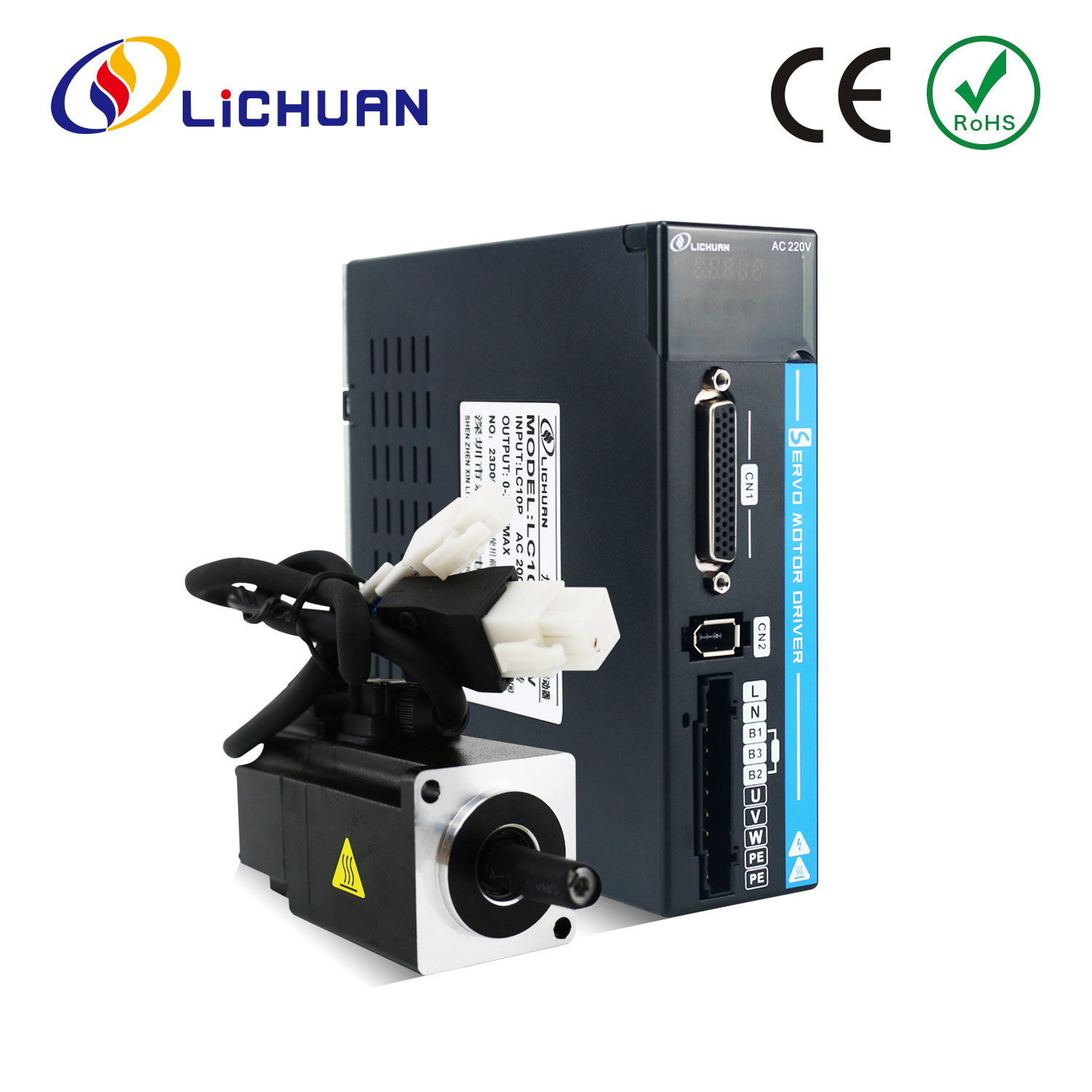AC vs. DC Servo Motors: Understanding the Key Differences
2024-05-20
Servo motors are critical components in various applications requiring precise control of position, velocity, and torque. Among the different types of servo motors, AC and DC servo motors are the most commonly used. While they serve similar functions, they operate on different principles and offer distinct advantages and disadvantages. In this blog, we will explore the fundamental differences between AC servo motors and DC servo motors.
Fundamental Principles
AC Servo Motor:
AC servo motors operate on alternating current (AC). They are typically composed of a stator with a coil and a rotor that generates a magnetic field. The changing polarity of the AC power supply creates a rotating magnetic field in the stator, causing the rotor to turn. This type of motor is often used in high-precision applications due to its ability to provide smooth and precise control.
DC Servo Motor:
DC servo motors operate on direct current (DC). They consist of a stator and a rotor with a commutator and brushes. The commutator periodically reverses the current direction in the rotor windings, allowing the rotor to rotate continuously. DC servo motors are known for their simplicity and ease of control, making them suitable for various applications, including those requiring quick responses.
Control Systems
AC Servo Motor:
AC servo motors typically use a more complex control system, often incorporating digital signal processors (DSPs) and advanced algorithms. The control system uses feedback from sensors such as encoders or resolvers to adjust the motor's position and speed precisely. This closed-loop system ensures high accuracy and stability, which is essential in applications like robotics and CNC machinery.
DC Servo Motor:
DC servo motors generally use simpler control systems. The feedback mechanism, often involving tachometers or encoders, helps maintain the desired speed and position. The control system can be either open-loop or closed-loop, but the latter is more common in applications requiring higher precision. DC servo motors are easier to control due to their straightforward design and linear response to voltage changes.
Performance Characteristics
AC Servo Motor:
- High Precision: AC servo motors are capable of achieving very precise control of position, speed, and torque.
- High Efficiency: These motors are typically more efficient, especially at higher speeds and under varying loads.
- Better for Continuous Operation: AC servo motors are more suited for continuous operation without overheating.
DC Servo Motor:
- Quick Response: DC servo motors provide a rapid response to control signals, making them ideal for applications needing fast acceleration and deceleration.
- Ease of Control: The simpler control mechanisms make DC servo motors easier to set up and operate.
- Higher Maintenance: The presence of brushes and commutators in DC servo motors leads to more wear and tear, requiring regular maintenance.
Applications
AC Servo Motor:
Due to their precision and efficiency, AC servo motors are commonly used in high-end industrial applications, including:
- Robotics
- CNC machines
- Factory automation
- Aerospace systems
DC Servo Motor:
DC servo motors, with their quick response and ease of control, are preferred in applications such as:
- Small robotics
- Automotive systems
- Simple positioning systems
- Hobbyist projects
Cost and Maintenance
AC Servo Motor:
AC servo motors generally have a higher initial cost due to their complex control systems and advanced components. However, they tend to have lower maintenance costs over time since they do not have brushes that wear out.
DC Servo Motor:
DC servo motors are usually less expensive initially but may incur higher maintenance costs due to the wear and tear of brushes and commutators. They are more suitable for applications where cost is a significant consideration and maintenance can be regularly scheduled.
Conclusion
Both AC and DC servo motors have their unique strengths and are suited to different applications. AC servo motors excel in precision, efficiency, and continuous operation, making them ideal for high-end industrial uses. In contrast, DC servo motors offer quick responses, ease of control, and cost-effectiveness, which are beneficial in simpler or more dynamic applications.
Understanding these differences can help you choose the right type of servo motor for your specific needs, ensuring optimal performance and longevity in your application.



